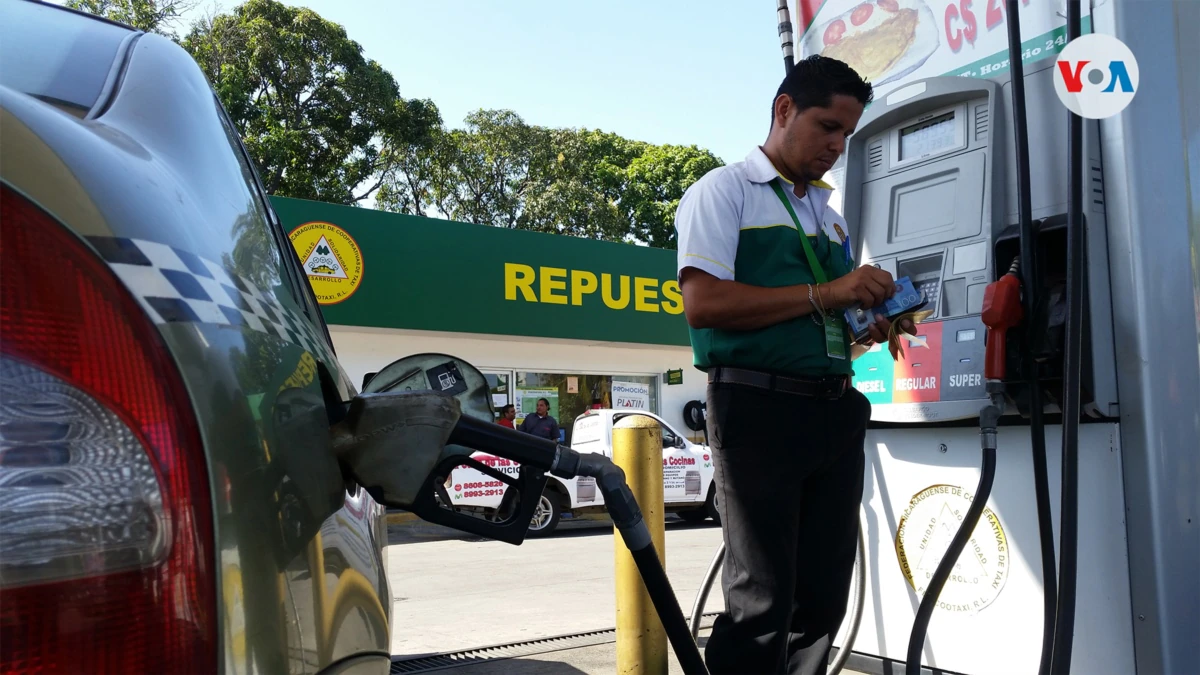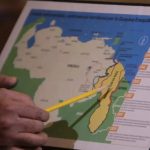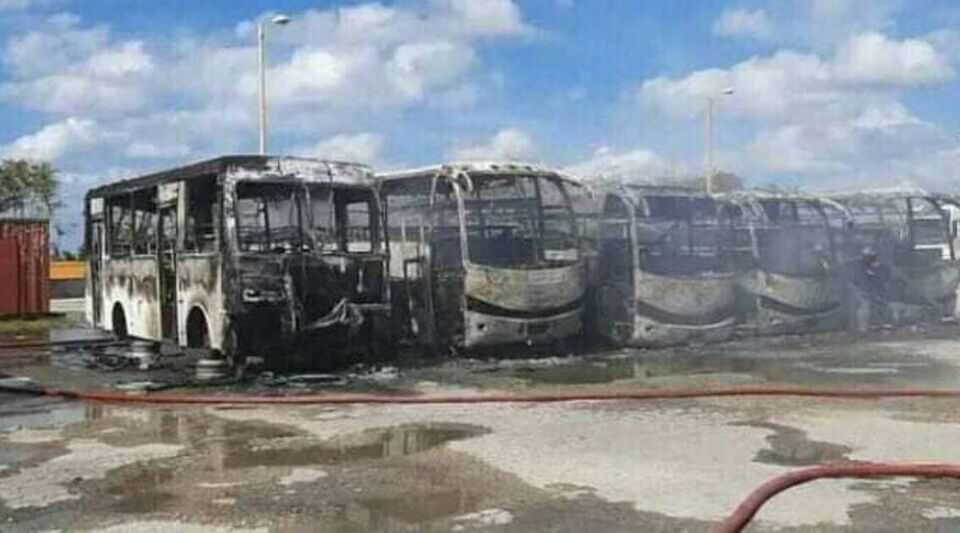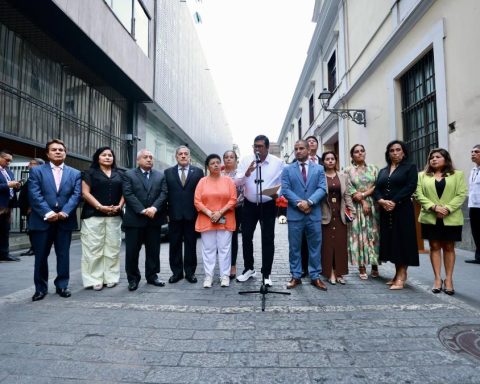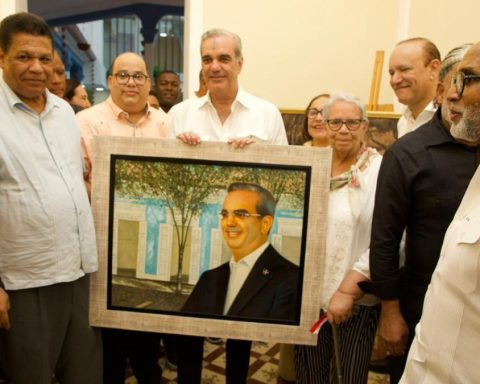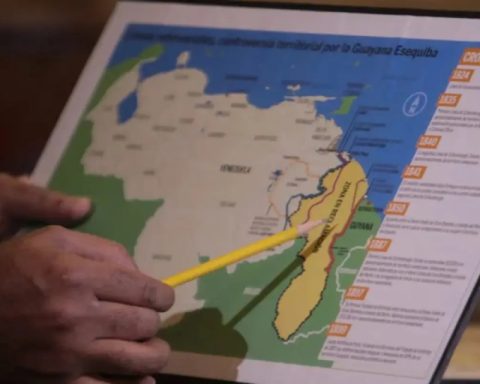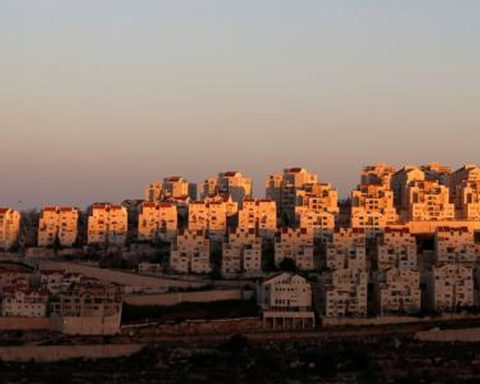Filling the tank of her vehicle is a sacrifice for Lilia Vílchez, a woman who lives in Managua, due to the constant increases in fuel prices in Nicaragua, one of the poorest countries in the region.
Vílchez is just one of the thousands of Nicaraguans who suffer from the rise in crude oil due to the Russian invasion of Ukrainewhich has triggered the price of oil
“Well, right now I’m going to put 20 liters, but I already feel that I can’t handle the cost of fuel,” says the woman to the voice of america.
Citizens criticize that the Nicaraguan government has allowed constant increases, regardless of the recent conflict. Others question that the times prices have been frozen, mobile phones were political. For example, in 2021, prior to the elections, the cost of fuels was frozen by decision of the authorities.
The Government usually makes the decision to freeze fuel prices despite the fact that these are not regulated by the State
“The situation has hit me too hard, now I ask you a question: What can we do?”, says Leonardo Vidal, who lives in Managua, indignantly.
The best-selling liquefied petroleum gas tanks are those of 25 pounds, and their value was frozen last week by decision of the Government at 436 córdobas (12.21 dollars), according to the local reference price, based on Managua.
Each liter of super gasoline, the most used in light cars, was set last week at 47.64 córdobas (1.33 dollars), while the liter of regular gasoline, most used in less modern cars, was 46.48. ($1.30). The price of diesel, used by heavy vehicles, was frozen at 41.37 cordobas (1.15 dollars).
The impact of Ortega’s measures to mitigate the consequences of the rise?
The government of Daniel Ortega has taken some measures. Days ago he announced that he was assuming 70 percent of the increase that was to be applied on Sunday, March 27, in addition to other unclear actions.
“[El Gobierno] it will be absorbing 70% of these increases in the case of gasoline and diesel, and it will be maintaining the prices of liquefied petroleum gas, which is what Nicaraguan families use to prepare food, without any change,” the report said. Nicaraguan Institute of Energy and the Ministry of Energy and Mines, in a joint statement last week.
However, the text indicated that the measure would not be permanent, since the authorities will decide on prices every week, according to needs. In fact, the authorities explained that the decision is exceptional, since every week the prices of fuels in Nicaragua are increased regardless of the cost of oil in international markets.
Thus, fuel costs rose in the week the measures were announced.
The Nicaraguan economist Maykell Marenco considers that the measures will be unremarkable: “Many times it was seen that the international price of oil decreased and it was not perceived in the national markets.”
“Many times there was a drop in the price of a barrel of oil; in the national market it was not perceived, but it was perceived every time there has been an increase at the international level”, comments Marenco.
On the other hand, the economist points out that one reason why Nicaraguans suffer more from the increase in fuel prices is due to the fragile economy.
“Although it is true, there have also been increases in the price of fuel, they are not perceiving what is perceived in Nicaragua, which is the opportunity cost. At the end of the day, either you fill the tank with fuel, you consume the same amount of fuel, or you make restrictions because your income does not allow you to continue at the same rate, hence we are observing this chaining effect on prices”, he underlines.
The rise in fuel prices continues to be one of the most palpable effects for Nicaraguans because it also affects the rise in the price of food and other essential products.
Connect with the Voice of America! Subscribe to our channel Youtube and turn on notifications, or follow us on social media: Facebook, Twitter and Instagram.
